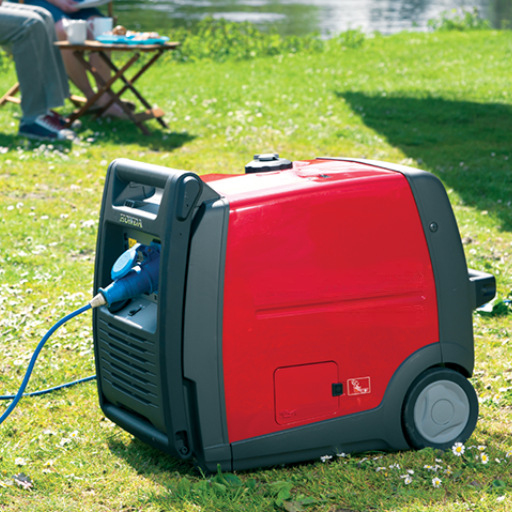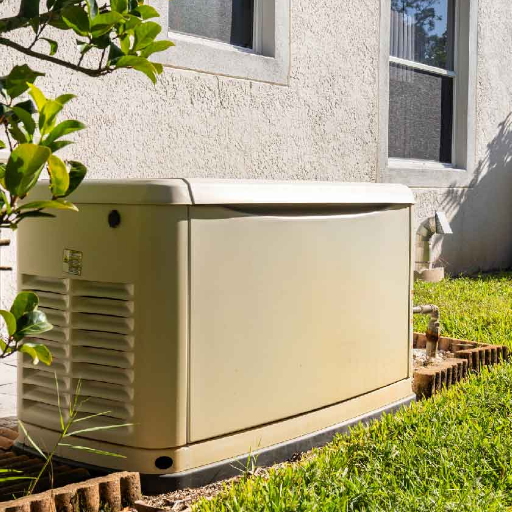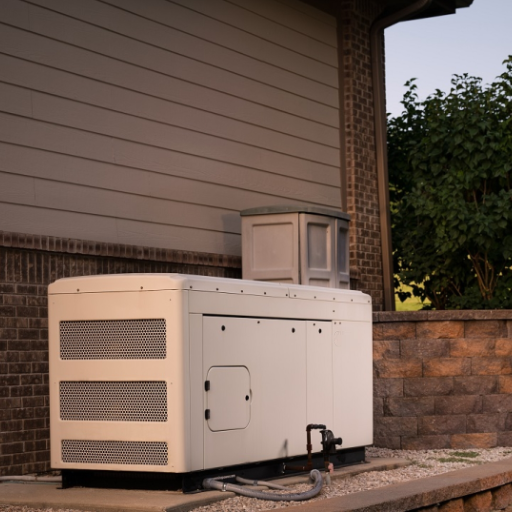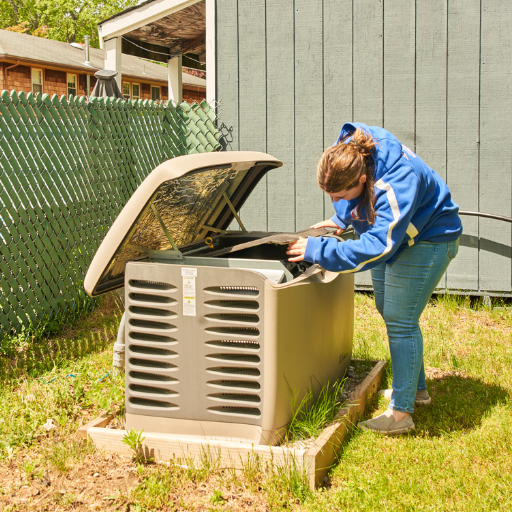Small generators have become an essential solution for individuals and businesses looking for reliable power sources during outages, outdoor activities, or remote work environments. Understanding the cost of these compact power units involves more than just the price tag—you must consider factors such as capacity, fuel efficiency, noise levels, and long-term maintenance requirements. This guide is designed to provide you with a detailed framework for evaluating the cost of small generators, enabling you to make an informed decision that balances budgetary constraints with your specific power needs. By exploring the different price ranges, key features, and factors influencing long-term expenses, this article will equip you with the knowledge to invest in a generator that powers your life effectively and economically.
What factors influence the cost of a small generator?
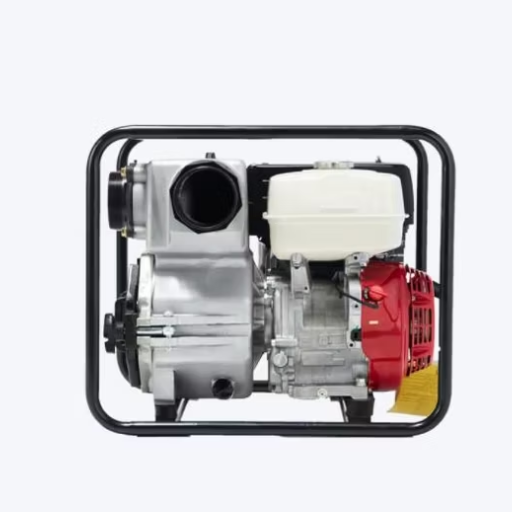
How does wattage affect generator pricing?
Wattage is one of the primary factors that influence the price of a generator from a technical standpoint. As a rule of thumb, portable generators with higher wattages are priced higher than low-wattage counterparts due to their ability to power more demanding appliances, which means more sophisticated parts and better engineering are needed for construction. For example, a 2,000-watt generator can run small devices or tools, whereas a 10,000-watt generator is needed for larger systems such as homes.
- Rated Wattage (Continuous Power Output): Defined as the amount of power a generator is capable of producing continuously without tailing to the point of being overloaded. It must be noted that rated wattages mean corresponding high costs due to large alternators and tough designs.
- Surge wattage (peak power output): The amount of supplemental power a generator is capable of providing within a short specified period for tackling some starting loads like a refrigerator or air conditioner. Excess capacity components are required to maximize this demand.
- Fuel Efficiency: There is a common belief fuel is consumed more by larger generators, but it can also be argued that higher wattage models implement sophisticated fuel-saving innovations that will also increase cost.
In the end, it all comes down to your specific needs regarding energy consumption. Increased demand for wattage means higher payment allowances. There is n though all times need to balance efficiency with paying for unneeded items and definition overstepping the limits.
Are inverter generators more expensive than conventional ones?
Indeed, the cost of inverter generators is higher than that of conventional generators. However, this added cost is reasonable considering the inverter generators are more advanced and perform better than conventional generators. In particular, inverter generators operate differently by having a multi-phase power generation process that results in producing cleaner and more stable electricity. Other advantages include:
- Voltage Regulation: Inverter generators possess the ability to maintain a stable voltage output, unlike conventional generators. This makes them perfect for sensitive electronics.
- Noise Reduction: The inclusion of insulated casing, quieter engines, and noise-dampening materials means these generators have a lower decibel output when compared to traditional generators
- Portability: Their lightweight design, as well as compact size, makes them easier to transport which increases their portability.
- Fuel Efficiency: Because of the engine speed modulation feature with inverter generators, these devices adjust their RPM with power load, thus saving more fuel.
While these inverter generators cost much more than traditional ones, they are a better investment in the long run. These engines are much more efficient when it comes to power generation, quieter, and reliable.
Do fuel types impact the overall cost of a generator?
Indeed, the type of fuel used affects the overall expenditure of a fuel generator. From my perspective, the fuel selected dictates both the operating cost and the generator’s cost due to the implications on cost, availability, and environmental considerations. For instance;
- Gasoline: Commonly available, serves the smaller portable generators, however, it is expensive per gallon and has a poor shelf life which leads to higher long-term costs.
- Diesel: For greater fuel efficiency and longer engine life, diesel should be used. However, diesel generators are more expensive to purchase and may need more repairs, like filter changes, over time.
- Propane: Cleaner burning and environmentally friendly, but having a lower energy density than gasoline or diesel means that more fuel is needed for comparable runtime.
- Natural Gas: Economical in the long run if there is a sustained line already available, but increases initial expenditure because the infrastructure needs to be set up.
Indeed, these differences make it necessary to select one fuel type based on runtime requirements, its availability, and the most cost-effective ways to use it to ensure that both short and long-term costs are optimized.
How much should I expect to pay for a portable generator?
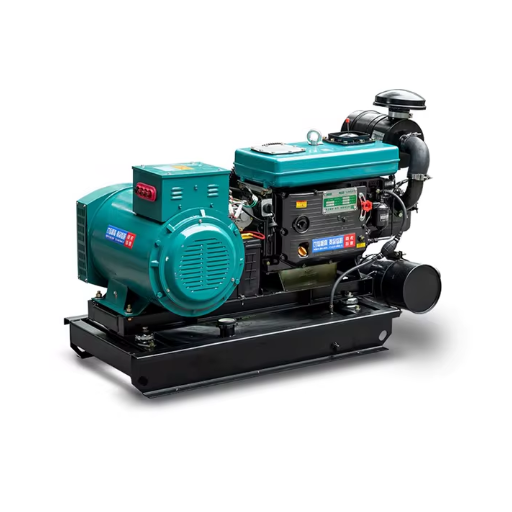
What’s the price range for small gasoline-powered generators?
Restrictions on power generators are not as severe as one would suppose; small gas-powered portable generators cost between $300 and $1000, and this price varies depending on power wattage amongst other specifications. The following key features affect cost:
- Wattage Output: Small gas-powered generators have a range between 1,000 and 4,000 watts, enough to power small appliances and basic tools.
- Fuel Tank Capacity: Most models have a tank capacity between 1 and 5 gallons. A smaller tank will allow for 4 to 6 hours of run time, while larger tanks can sustain the generator for about 10 to 12 hours per fill.
- Portability: Products in this category are portable, weighing between 40 and 100 pounds with an integrated handle or wheels to aid with transport.
- Noise Levels: When in operation, these generators normally produce around 50 to 70 decibels. As with most products, those that operate quieter generally cost more.
By assessing these specifications, you can select a generator that aligns with your power needs and budget effectively.
Are dual-fuel portable generators more expensive?
Indeed, dual-fuel portable generators are usually costlier than single-fuel models. This price difference is explained by greater versatility and greater efficiency. For instance, dual-fuel generators have the flexibility of utilizing propane or gasoline as a fuel source, and this flexibility can be exercised depending on the availability, price, or engine performance. And that is not all; dual fuel generators usually come with several other attachments such as fuel selectors, robust fuel systems, and other supportive dual-function engines, all of which require robust engineering and therefore, increase the costs of the generator.
- Switching fuel options: with dual fuel generators users have the option of switching from gasoline to propane and vice versa.
- Power output Variability: relative to single-fuel models, the output may not vary greatly, though some benefits can be gained from varying the fuel type.
- Run Time: Propane allows for more stable and longer runtimes, while gasoline produces greater power output but for a shorter time.
- Engine Design: Advanced and sophisticated systems are needed for dual fuel operation, which makes them more complex and less susceptible to harsh conditions.
These factors, all in all, tend to contribute to the plausibility of the disparity between single and dual-fuel portable generators.
How do electric start features affect generator costs?
Due to the convenience and extra components provided by electric start features, generator costs are impacted primarily by the price quote. In more technical terms, these systems have a starter motor, battery, and electronic controls which increases the material and production expenses. The added functional value of being able to start the generator with a push button rather than a manual recoil pull offers these systems greater value for money and justifies these prices.
- Starter motor: The complexity of these generators is increased mechanically, but they guarantee a reliable start aim.
- Battery: Powers the electric start and requires maintenance which includes replacing the battery over time.
- Control circuitry: Increases the overall cost of the system while increasing enablement.
While control circuitry improves flexibility, these parameters increase the price of the generator. However, its simplicity of use compared to traditional generators offers great value for people who consider elevated accessibility as a core requirement.
What are the hidden costs of owning a small generator?
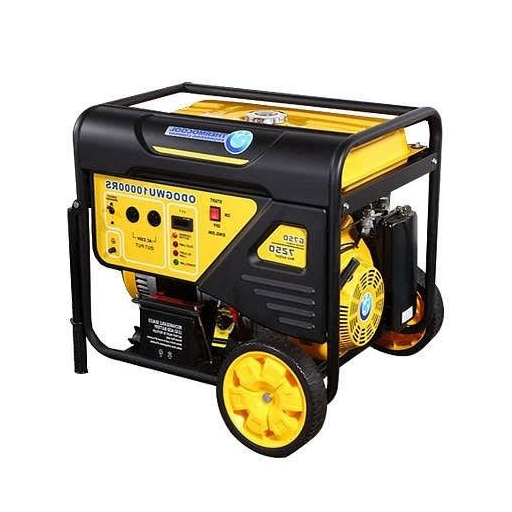
How much does fuel consumption impact long-term costs?
When small generators are used for long durations, fuel consumption is an important consideration as it impacts the long-term cost. To me, how an engine uses fuel, whether in gallons per hour (GPH) or liters per hour (LPH), reflects the overall expenses incurred by a generator. To illustrate, a generator with a 5kW capacity has fuel efficiency ranging between 0.5 and 0.75 GPH at 50% load. Like most engines, a generator’s fuel efficiency is determined by load conditions and higher loads will mean an increase in fuel consumption.
Despite gasoline models being cheaper, diesel generators have always had the advantage of better fuel economy which ranges 20-30% in certain cases. In the same fashion, inverter generators which automatically control power usage according to the need are more cost-effective for low-load or intermittent use.
Lastly, consider the most overlooked costs such as the time needed to refuel the generator alongside storage expenses. In the long term, spending on variable RPM core engines alongside automatic load adjustment features will reduce fuel waste and provide better utilization economically.
What maintenance expenses should I consider?
The costs associated with maintaining a generator are multi-faceted. For one, oil filters need to be changed every 200 hours or so depending on the make and model of the generator. In addition to that, replacing the air filter at regular intervals is crucial in ensuring engine efficiency, especially in dusty areas, so servicing them every 200-300 hours is recommended.
Spark plugs need to be checked regularly as well since they are vital to properly starting an engine. Being responsible for proper fuel-to-air mix ratio and controlling the engine’s combustion, these need to be maintained every 100-150 hours. If the generator runs on gasoline, it is essential to periodically clean the fuel system to mitigate clogging and boost efficiency. Electronic components of inverter generators are often neglected but they are just as important and must be inspected during the yearly maintenance along with setting the correct output frequency and voltage limits.
There are two more details to take into consideration. Any emergency power supply model is prone to corrosion over extended periods so preventing measures such as terminal cleaning are necessary to boost battery life and aid in reliability. Adequate placement of the generator is equally as important. Setting it up in wet and humid places makes it easier to corrode and damage the insides which is why spending on waterproofing and moisture-absorbing aids becomes crucial.
Are there any installation costs for portable generators?
Even though these types of generators are easier to set up when compared to stationary generators, they still have some installation costs associated with them. The expenses differ based on how detailed the installations are, any assistive accessories required, and the level of professional help needed. For instance, an electrician wiring the generator to the house’s transfer switch may charge for the requisite safe and legal connections.
- The Additional Fee for Wiring: Depending on the kind of switch and the rates that are usually charged for labor, this can cost anywhere between $200 to $800.
- Cabling and Connectivity: Adapters and extension cords are not included with the generator but are needed in addition could cost anywhere from $20 to $100 depending on type and length.
- Fuel Type Compatibility: Generators with dedicated fuel lines for propane and natural gas usually will require more integrations which increases the cost.
Choosing less popular specific designs requires more research for greater planning to avoid incurring these additional expenses. This will ensure machines that feature a plug-and-play mechanism with easy-to-use mobile designs need minimal setting up.
How do standby generators compare in cost to portable ones?
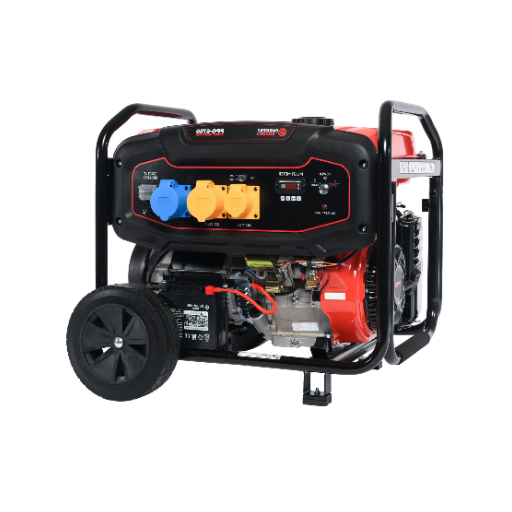
What’s the price difference between portable and standby generators?
The distinction between portable and standby generators is notable and illustrates the difference in pricing due to scale, installation, and features. The cost of portable generators varies between two hundred to two thousand US dollars due to their fuel type, output wattage, and additional features such as noise suppressors and inverter technology. In contrast, the cost of standby generators begins at two thousand dollars and can reach up to fifteen thousand dollars when installation is included.
- Wattage Output: Most portable generators can produce between two thousand to ten thousand watts, enough to power basic household tools and appliances. Standby generators possess between ten thousand to fifty thousand watts, allowing them to power entire homes and commercial facilities.
- Automatic Transfer Switch (ATS): Unlike portable generators which require manual switching, standby generators are equipped with an ATS where power automatically switches during an outage or at any pre-programmed time.
- Fuel Source: While portable generators make use of gasoline and dual-fuel, standby generators make use of propane and natural gas as fuel sources, making them far more dependable and allowing for longer periods of uninterrupted power supply.
- Durability and Maintenance: Portable generators are lightweight and easily transported, while standby generators are permanently installed. As a result, standby generators are often more durable, which makes them weatherproof, alongside a need for less maintenance over time.
The technology and operational differences between the two types of generators are drastic and are an adequate reason why standby generators are so expensive.
Are natural gas standby generators more cost-effective in the long run?
Sure, natural gas standby generators are more economical in the long run for several reasons. In the first place, natural gas has a lower cost per energy unit than gasoline or diesel and it is not subject to major swings in price. Second, the requirement for refueling is automated for these generators because natural gas is provided through utility lines, thus eliminating the cost and trouble of fuel delivery as well as storage. In addition, because natural gas burns cleaner, these generators tend to have lower maintenance requirements as well.
- Fuel Cost Stability: Natural Gas is averaged between 10 dollars and 12 dollars per million BTU as opposed to gasoline which is on average 25 to 35 dollars depending on the market conditions.
- Efficiency: Natural gas generators routinely possess a thermal efficiency of 30-40%, which is equivalent or superior to most liquid fuel options.
- Maintenance Costs: Cleaner combustion cuts down on carbon build-up, lowering maintenance intervals and prolonging engine life.
- Operational Longevity: Many manufacturers intend for natural gas systems to endure over twenty years with proper usage and maintenance.
For installations that require steady and dependable backup power, these benefits make natural gas standby generators a more cost-effective solution for most long-term scenarios.
How can I reduce the cost of running my small generator?
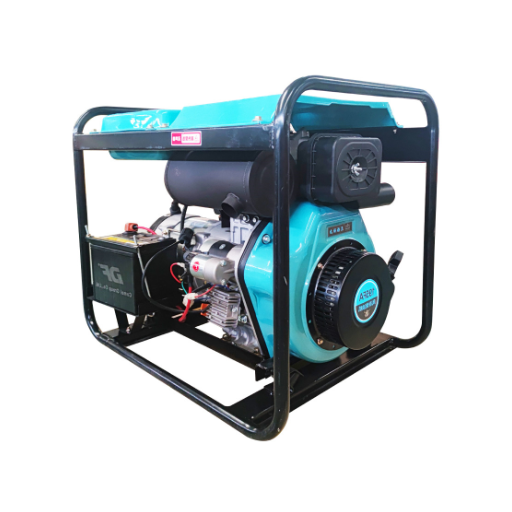
What are some fuel-saving tips for portable generators?
The cost efficiency of my portable generator is maximized considerably by putting special focus on a few techniques:
- Best Loading Conditions: Fuel consumption is improved when the generator is operating at a 50-75% rated load. Fuel is wasted when there is too low of a load on the generator and wearing the generator through overloading results in excessive fuel consumption alongside wastage of fuel.
- Scheduled Maintenance Routines: Scheduled maintenance practices such as changing oil, cleaning air filters, and checking spark plugs are done to maintain engine performance. The cleaner the engine, the more effective the fuel consumption, avoiding wastage.
- Fuel Types: I always ensure that the fuel used is recommended, along with ensuring its freshness. Fuel like unleaded gasoline, natural gas, and propane serve a good purpose. However, rancid fuel lowers combustion efficiency, resulting in elevated consumption.
- Avoid Fuel Waste: Unnecessary fuel wastage occurs when there isn’t any required equipment but the generator is powered on. Fuel wastage is increased when the generator is idling as it provides little to no electric output.
- Invest in Energy-Efficient Goods: During operation, energy-saving devices have proven efficient as they minimize the power needed to be utilized. This overall reduces the needed energy from the generator and, subsequently fuel consumption.
- Make use of Eco-Mode if Your Generator Has It: If a generator includes an eco-mode or smart throttle, I make it a point to activate them. Such features increase fuel efficiency by reducing the engine speed during low utilization periods.
The institution of these practices guarantees the economical functioning and, at the same time, increases the effectiveness and durability of my portable generator system.
Does regular maintenance help in reducing long-term costs?
Maintaining a generator dramatically cuts down long-term costs by ensuring its efficiency and lowering the chances of it breaking down unexpectedly. Key components such as the air filter, spark plug, and fuel system are preserved by timely servicing and checks. In essence, performance issues are optimally avoided. Here are a few examples:
- Oil Changes: Oil change regimes prevent excess wear on the engine caused by friction and heat, ensuring its longevity. Maintenance such as this is best performed after every 50 to 100 hours of operation as recommended by most manufacturers.
- Replacement of Air Filters: An unsoiled air filter ensures smoother combustion by controlling the intake of air which also leads to lower fuel usage and reduced accumulation of carbon.
- Inspection for load management: Periodic checks on load allocation guarantee that stress on the engine is minimized to avoid overworking it.
- Battery Maintenance: For generators equipped with electric start systems, testing the battery prevents issues during critical times for enhanced reliability.
With the diligent performance of these routines, operational costs are lowered, fuel efficiency is enhanced, and the generator serves for a longer duration.
Reference sources
Frequently Asked Questions (FAQs)
Q: What is the average cost of a small power generator?
A: The cost of a small power generator can vary widely depending on its features and capacity. On average, you can expect to pay between $300 to $1,000 for a portable generator with a popular running wattage of 1,800 to 4,000 watts. More advanced models with features like remote electric start or dual fuel technology may cost up to $2,000 or more.
Q: How long can a small generator typically run?
A: The run time of a small generator depends on its fuel capacity and load. Most portable generators can run for 8 to 12 hours at half-load. Some more efficient models may offer up to 18 hours of run time. It’s important to check the manufacturer’s specifications for the exact half-load run time of the generator you’re considering.
Q: Are gas-powered portable generators more cost-effective than propane models?
A: Both gas and propane-powered portable generators have their advantages. Gas generators are generally less expensive upfront and easier to refuel. However, propane generators tend to run cleaner and have a longer shelf life for fuel storage. Some models offer dual fuel technology, allowing you to use both gasoline and propane, which can be more cost-effective in the long run depending on fuel prices and availability.
Q: What safety features should I look for in a small generator?
A: When purchasing a portable generator, look for safety features such as a CO shield or CO sensor technology, which automatically shuts off the generator if dangerous levels of carbon monoxide are detected. Other important safety features include overload protection, low-oil shutoff, and GFCI outlets. Many Generac and other reputable brands include these features in their portable power solutions.
Q: How do I determine the right size generator for my needs?
A: To determine the right size generator, calculate the total wattage of all the appliances and devices you need to power simultaneously. Add up their running watts and consider any additional starting watts for motors. Most households can manage with a generator in the 3,000 to 6,500-watt range. For tailgating or camping, a smaller 1,000 to 2,000-watt portable generator might suffice.
Q: Are there any alternatives to traditional gas generators?
A: Yes, there are alternatives to traditional gas generators. Solar generators are becoming increasingly popular as a clean and quiet power source. They’re ideal for camping or as a portable home power solution. While they typically have a higher upfront cost, they have lower operating costs and are environmentally friendly. Another alternative is inverter generators, which are more fuel-efficient and produce cleaner power for sensitive electronics.
Q: What maintenance is required for a small generator?
A: Regular maintenance is crucial for the longevity and performance of your generator. This includes changing the oil and air filter periodically, checking and replacing spark plugs, and keeping the generator clean. Follow the manufacturer’s recommended maintenance schedule, which usually includes service after a certain number of operating hours or annually, whichever comes first.
Q: How noisy are small generators?
A: The noise level of small generators can vary significantly. Traditional portable generators typically produce 65 to 75 decibels of noise, which is about as loud as a vacuum cleaner. However, many modern models feature quiet technology that can reduce noise levels to 50-60 decibels, making them much more neighborhood-friendly. Look for generators advertised as “quiet” or check their decibel ratings if noise is a concern.
Q: Can I use a small generator to power my RV?
A: Many small generators are RV-ready, meaning they have the appropriate outlets to connect directly to your RV’s electrical system. Look for generators with a 30-amp RV outlet or those specifically marketed as RV-ready. Ensure the generator’s wattage is sufficient to power your RV’s essential appliances, typically ranging from 2,000 to 4,000 watts for most RV setups.




